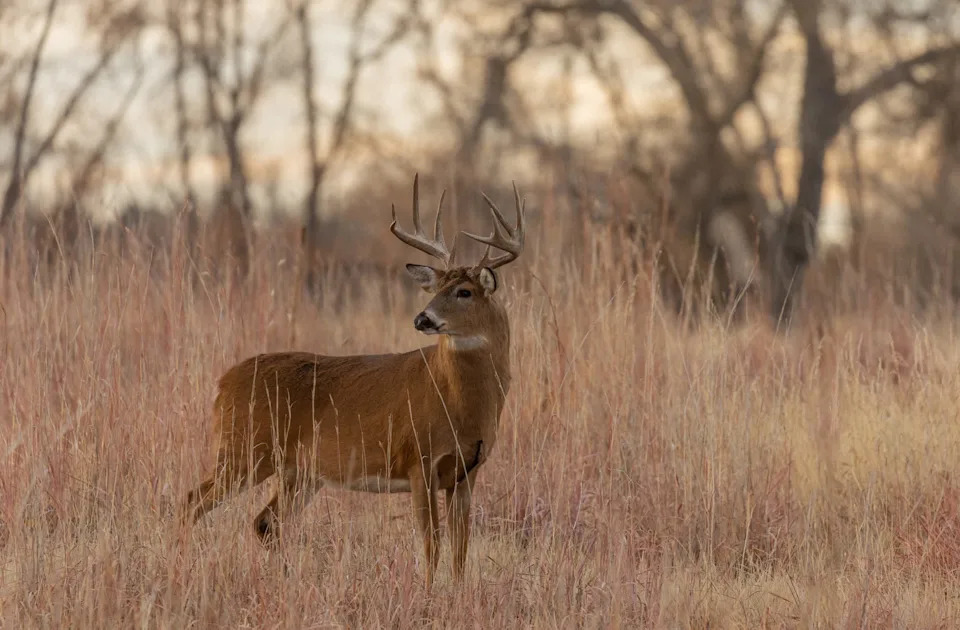Sussex World reported that a landowner spotted a distressed fallow buck with its antlers entangled in discarded electric netting left in the corner of a field in Mark Cross, Sussex, England.
The East Sussex Wildlife Rescue & Ambulance Service (WRAS) dispatched its specialist deer disentanglement team, comprising two ambulances and four trained rescuers. They were equipped with rescue gear and specialized safety gear.
WRAS Deer Rescue lead Trevor Weeks explained, “The release can be just as dangerous as the capture.”
The team had to work quickly and carefully to maintain safety for themselves and the deer, restraining the buck and covering its head to minimize the animal’s stress. They then secured the deer’s legs and antlers and cut away the netting. Due to their training, the deer were freed safely and released in about six minutes.
Generally, entanglements pose a significant risk to wildlife on land and in the ocean. WRAS said that in Sussex, deer, foxes, badgers, and hedgehogs are particularly vulnerable, and reported that they had rescued eight other animals just in the previous month.
Even mild entanglements cause undue stress to the animal involved. Fishing gear and marine debris often pose problems for aquatic animals in oceans, lakes, and coastal areas. They can cause animals to drown if they are not able to surface. On land and in the water, entanglement can lead to severe injury or even death.
Being mindful of how we dispose of waste and reducing our plastic usage can help protect animals. Taking local action to educate others and create cleanup events is a great way to support local wildlife. WRAS encourages landowners to regularly inspect their fences and securely store any items that could potentially cause future incidents.
Their rescue teams are highly trained, so they advise the public not to attempt to free entangled animals themselves. Attempts by the public to free animals, though well-intentioned, can pose a risk to both the rescuers and the animals. Trained rescuers also know how to free the animals without allowing them to run free, thereby preventing them from becoming re-entangled by trailing material.
The buck rescued in Sussex looked back at the rescuers after running into the nearby woods.
Weeks said, “Deer don’t always realize they’re free and sometimes need encouragement to move, but once he knew he was safe, he was off and away — a fantastic sight to see.”
|
Do you think America does a good job of protecting its natural beauty? Click your choice to see results and speak your mind. |
Join our free newsletter for good news and useful tips, and don’t miss this cool list of easy ways to help yourself while helping the planet.
Yahoo News – Latest News & Headlines
Read the full article .


